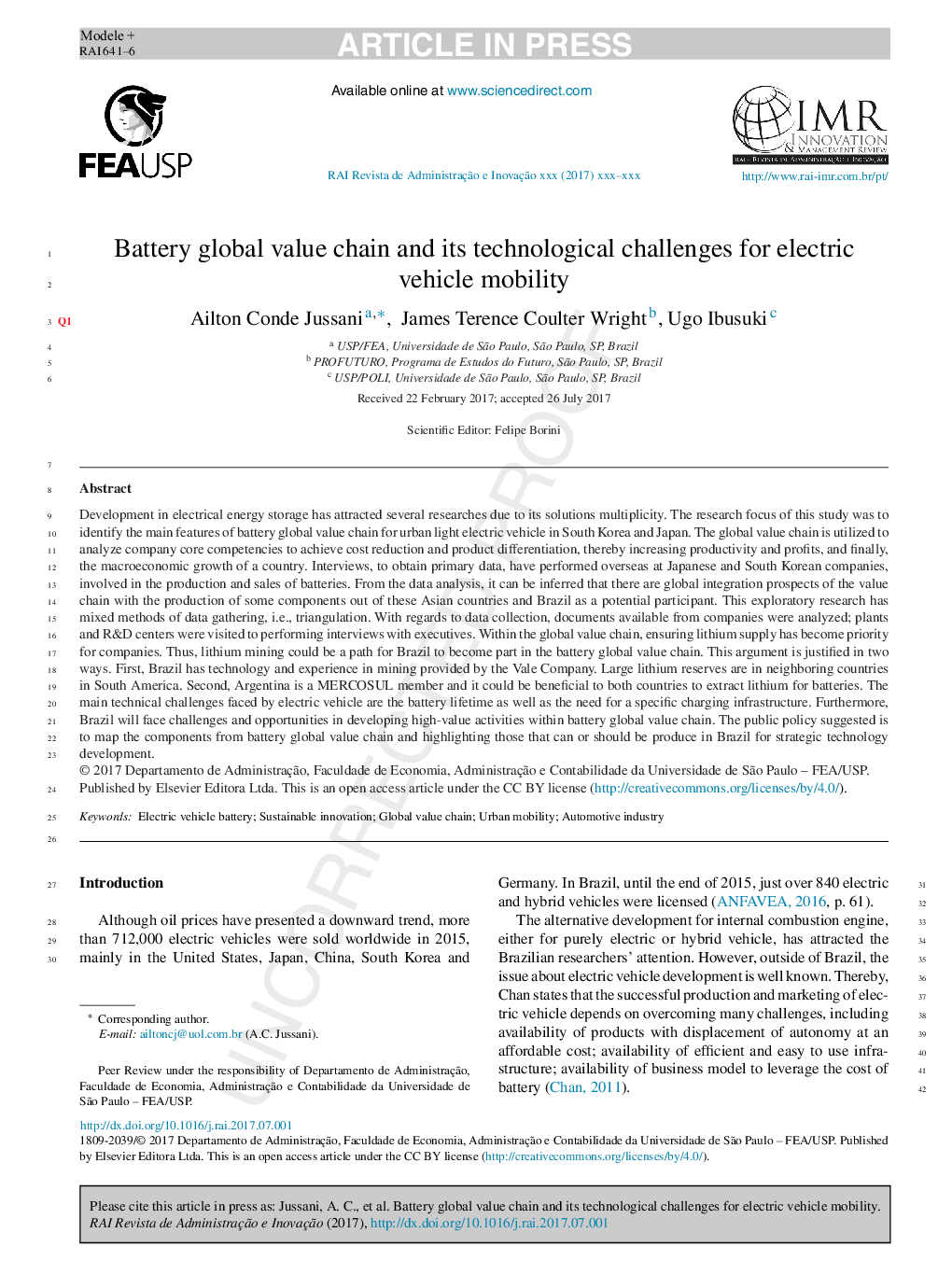ترجمه فارسی عنوان مقاله
زنجیره ارزش جهانی باتری و چالش های تکنولوژیکی آن برای تحرک خودرو
عنوان انگلیسی
Battery global value chain and its technological challenges for electric vehicle mobility
| کد مقاله | سال انتشار | تعداد صفحات مقاله انگلیسی |
|---|---|---|
| 96399 | 2017 | 6 صفحه PDF |
منبع

Publisher : Elsevier - Science Direct (الزویر - ساینس دایرکت)
Journal : RAI Revista de Administração e Inovação, Volume 14, Issue 4, OctoberâDecember 2017, Pages 333-338
ترجمه کلمات کلیدی
باتری خودرو الکتریکی، نوآوری پایدار، زنجیره ارزش جهانی، تحرک شهری، صنعت خودرو،
کلمات کلیدی انگلیسی
Electric vehicle battery; Sustainable innovation; Global value chain; Urban mobility; Automotive industry;

